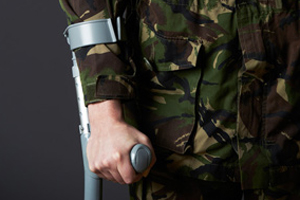A medical records review is one of the initial processes in the evaluation of a disability claim. When it comes to benefits for military veterans, veterans with a service-related disability could qualify for more than $3,300 in monthly benefits that are tax free. Veteran disability benefits are paid to those whose injuries or diseases occurred when they were on active duty, or were made worse by active military service.
The basic benefit paid will depend on how disabled the applicant is. To determine this, the VA reviews the medical evidence presented as part of the claim. Alternately, the VA may obtain the necessary evidence from the applicant’s medical records. The disability ratings are assigned from 0% to 100% in 10% increments such as 10%, 20%, 30% and so on. When there are multiple disabilities, the VA uses its Combined Ratings Table to arrive at a combined disability rating. In certain instances such as the following, a veteran may be eligible to receive additional amounts:
- The veteran has very severe disabilities or has lost a limb(s)
- Has a seriously disabled spouse
- Has a spouse, dependent parent or child(ren)
The documentation that needs to be submitted includes:
- All relevant medical evidence such as doctor and hospital reports
- Dependency records including marriage and children’s birth certificates
- Copies of SS214 or separation documents one may have
Recent news highlighted a welcome move from the federal government as regards veterans’ disability benefits. Former service members who were exposed to contaminated water at Marine Corps Base Camp Lejeune over a 35-year period can apply for disability benefits. The VA will accept applications from any service member who spent a minimum of 30 cumulative days at the base, whether that service was on active-duty, reserve or National Guard status. Applicants have a year to file the claims, and if approved will be paid benefits from the date of filing the claim.
This move is expected to affect around 900,000 veterans and cost more than $ 2 billion over the next 5 years. It comes after many years of lawsuits and lobbying by veterans’ groups. Numerous troops and their families were exposed to contaminants from leaky fuel tanks and other chemical sources while serving at the North Carolina base from the early 1950s to the late 1980s.
The law Congress passed in the year 2012 providing free medical care for troops and their families who lived at the base and developed one of 15 illnesses at a later stage. This rule did not include the authority to extend VA disability benefits to those veterans. However, it has been made possible by the new rule that extends the benefits for veterans who suffer from one of the eight diseases the VA officials consider definitely connected to water contamination. These diseases are aplastic anemia and other myelodysplastic syndromes, leukemia, kidney cancer, bladder cancer, liver cancer, multiple myeloma, Parkinson’s disease, and non-Hodgkin’s lymphoma. Applicants will have to submit all the required evidence for a detailed medical records review. In case it is not submitted, VA will use all relevant evidence from the Department of Defense (DoD) and internal resources to support the disability application.




